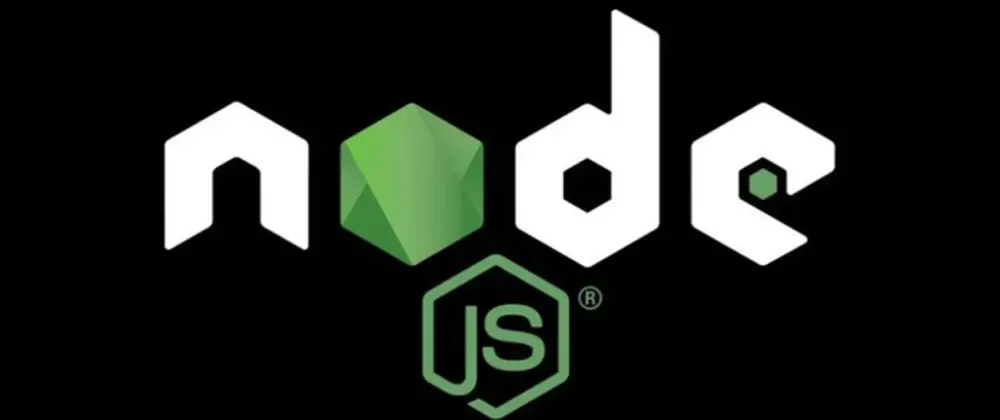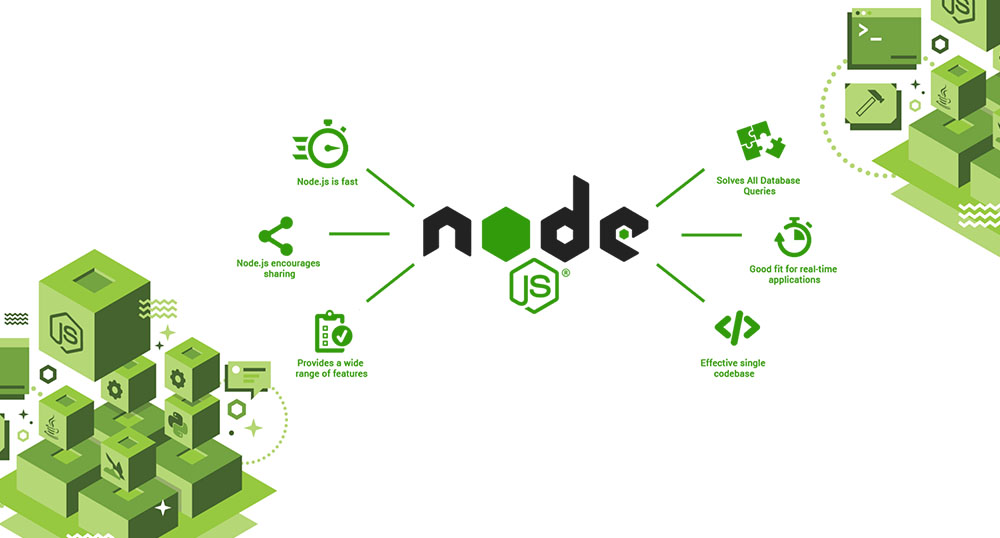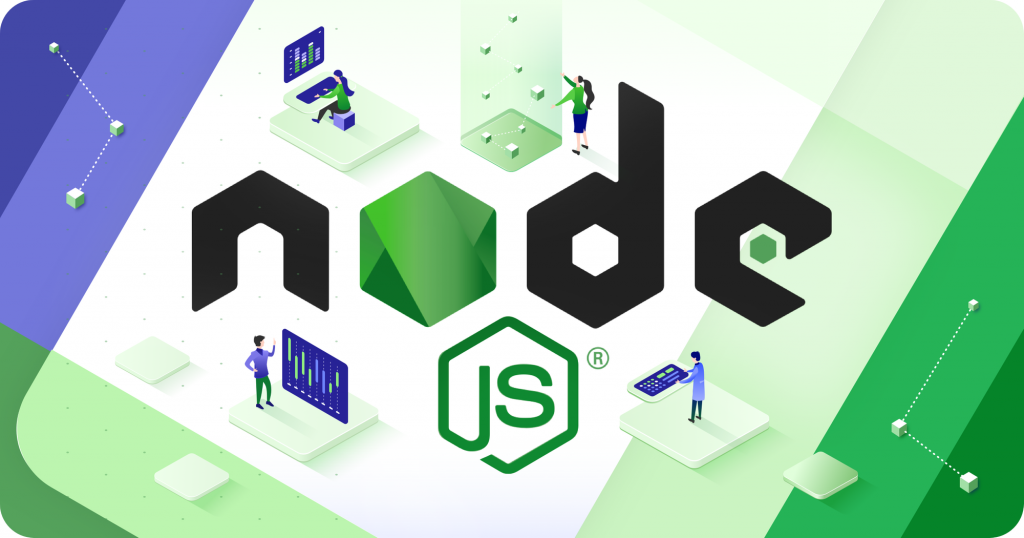Node.js is an open-source, cross-platform JavaScript runtime environment built on Chrome's V8 JavaScript engine. It allows developers to execute JavaScript code outside of a web browser, making it suitable for server-side scripting and building scalable, high-performance network applications. Ryan Dahl first introduced Node.js in 2009, and it has since gained immense popularity in the web development community.
Key Significance of Node.js:
Asynchronous and Non-Blocking: Node.js uses an event-driven, non-blocking I/O model, which means it can handle multiple concurrent connections without getting blocked. This asynchronous nature enables Node.js to efficiently handle large numbers of requests and responses simultaneously, making it ideal for real-time applications and APIs.
Fast Execution: By utilizing Google's V8 engine, Node.js executes JavaScript code extremely fast. Its ability to perform tasks quickly and efficiently contributes to its widespread adoption in modern web development.
Single Language: Node.js enables developers to write both client-side and server-side code in JavaScript, eliminating the need for context-switching between different programming languages. This unification simplifies the development process and encourages code reuse.
Large Package Ecosystem: Node.js has an extensive ecosystem of packages and modules available through the Node Package Manager (NPM). This rich repository allows developers to easily integrate various functionalities into their projects, speeding up development and reducing the need to reinvent the wheel.
Scalability: Node.js is designed with scalability in mind. Its event-driven architecture, low memory footprint, and non-blocking I/O make it well-suited for handling a large number of concurrent connections efficiently. It is an excellent choice for building high-traffic applications that require scalability and performance.
Community Support: Node.js has a robust and active community of developers, which means continuous updates, improvements, and a wealth of online resources, tutorials, and libraries. The strong community support contributes to the ongoing growth and innovation in the Node.js ecosystem.
Versatility: Node.js can be used for a wide range of applications, from building server-side web applications and APIs to developing desktop applications and Internet of Things (IoT) devices. Its versatility allows developers to leverage the same language and tools for various types of projects.
Node.js has become a dominant force in modern web development due to its speed, scalability, versatility, and the ability to handle real-time applications effectively. Its significance lies in revolutionizing the way developers build and deploy server-side applications, and it continues to play a pivotal role in shaping the future of web development.

Top Hosting Platforms for Node.js
Stablepoint
Stablepoint emerges as an exceptional hosting provider for Node.js, offering a cutting-edge and optimized platform tailored specifically to meet the unique demands of Node.js applications. With a strong emphasis on performance, reliability, and advanced server configurations, Stablepoint ensures that Node.js projects run seamlessly and deliver exceptional user experiences.
Host For Web
Their state-of-the-art infrastructure and scalable hosting solutions provide businesses with the flexibility to adapt and grow their Node.js applications effortlessly. Moreover, Host For Web`s dedicated customer support team is well-versed in Node.js and available 24/7 to address any technical challenges and provide expert guidance.
Web Hosting Buzz
As Node.js continues to gain popularity for its server-side capabilities, Web Hosting Buzz stands as a reliable partner, offering the essential tools and resources to excel in the dynamic world of Node.js hosting.

Criteria to Consider when Choosing a Node.js Hosting
When choosing a hosting service for Node.js applications, consider the following criteria to ensure the best performance, scalability, and support for your specific needs:
Node.js Support: Ensure that the hosting provider explicitly supports Node.js and offers the version you need for your application. Some providers might have restrictions or limitations on the Node.js versions they support.
Performance and Uptime: Look for a hosting service that guarantees high performance and reliable uptime. Check user reviews and historical uptime data to ensure your application will be available and responsive to users.
Scalability: Determine whether the hosting provider offers scalable options to handle increased traffic and demand. This is important for applications that anticipate significant growth or sudden traffic spikes.
Deployment and Management: Consider the ease of deploying and managing your Node.js application on the hosting platform. A user-friendly interface, documentation, and robust management tools can simplify the process.
Security Features: Security is critical for any web application. Ensure the hosting provider offers essential security features like SSL certificates, firewall protection, and regular backups.
Support for NPM and Modules: Check if the hosting service supports NPM (Node Package Manager) and allows easy installation of required modules and packages for your application.
Pricing and Plans: Compare pricing plans and features to find a balance between your budget and the hosting services offered. Look for transparent pricing without hidden costs.
Database Support: Consider whether the hosting provider supports databases that your Node.js application may require, such as MongoDB, MariaDB/MySQL, or PostgreSQL.
Content Delivery Network (CDN): CDN integration can significantly improve the performance and loading times of your application, especially for users located in different geographical regions.
Customer Support: Reliable customer support is essential, especially during critical times. Ensure the hosting provider offers responsive and knowledgeable support through various channels.
Backup and Recovery: Regular backups and disaster recovery options are vital to protect your data and quickly restore your application in case of any unforeseen issues.
Server Locations: If your application caters to a specific region, consider the server locations offered by the hosting provider to minimize latency and improve performance for your target audience.

Case Study: Successful Node.js Apps and Their Hosting Choices
Netflix
Netflix uses Node.js for its server-side rendering and various backend services to deliver a seamless streaming experience. Hosting Choice: Netflix initially used their own data centers for hosting, but they later migrated to AWS (Amazon Web Services) for improved scalability and flexibility.
LinkedIn leverages Node.js for real-time features, such as messaging and notifications, as well as various backend services. Hosting Choice: LinkedIn uses their private cloud infrastructure for hosting Node.js applications to handle the massive user base and ensure data privacy and security.
Uber
Uber uses Node.js to power parts of its backend systems, enabling real-time location tracking, trip matching, and driver-partner communication. Hosting Choice: Uber relies on a mix of on-premises data centers and AWS for hosting, allowing them to efficiently manage the vast amount of real-time data generated by their platform.
PayPal
PayPal utilizes Node.js for its frontend web applications, enabling faster and more dynamic user experiences for its customers. Hosting Choice: PayPal uses their private cloud infrastructure, along with partnerships with multiple cloud providers, for hosting to ensure high availability and scalability.
Trello
Trello, a popular project management tool, utilizes Node.js for its real-time collaboration features and seamless user interactions. Hosting Choice: Trello uses AWS for hosting its Node.js applications to benefit from AWS's global infrastructure and scalable services.
Walmart
Walmart uses Node.js for various microservices, enabling faster processing of online transactions and improving the overall shopping experience. Hosting Choice: Walmart opted for Microsoft Azure for hosting Node.js applications, leveraging Azure's global presence and services for seamless scalability.
Conclusion
Choosing the right hosting for Node.js is paramount to ensuring optimal performance, scalability, security, and seamless user experiences. A well-matched hosting provider can empower your Node.js application to handle real-time demands, support rapid growth, and contribute to the success of your web application or service. By carefully evaluating the criteria and best practices we discussed, you can confidently select a hosting platform that lays a strong foundation for your Node.js application's success.
Is Node.js Hosting Suitable for Small Businesses and Startups?
Absolutely! Node.js hosting is a great choice for small businesses and startups. Its scalability and non-blocking I/O model make it efficient even with limited resources. Hosting providers often offer cost-effective plans that cater to the needs of small-scale applications, making it accessible for businesses of all sizes.
What Security Measures Should I Consider with Node.js Hosting?
Security is crucial for any web application. When choosing Node.js hosting, ensure that the provider offers SSL certificates for encrypted data transmission. Additionally, look for hosting services with robust firewall protection and regular security updates to safeguard your application from potential threats.
Is Node.js Hosting Suitable for E-commerce Applications?
Yes, Node.js hosting is well-suited for e-commerce applications. Its ability to handle concurrent connections and perform asynchronous operations efficiently ensures seamless user experiences during high-traffic periods, such as seasonal sales. Node.js is an excellent choice for building real-time features like live chat support and inventory updates.
Can I Deploy Node.js Applications on Shared Hosting?
While Node.js hosting is typically offered on virtual private servers (VPS) or dedicated servers, some providers may offer Node.js support on shared hosting plans as well. However, shared hosting may have limitations in terms of performance and resources, so it's advisable to opt for VPS or dedicated servers for better control and scalability.
Do Node.js Hosting Providers Offer Automatic Backups?
Yes, many Node.js hosting providers offer automatic backups as part of their service. Regular backups are crucial for data protection and disaster recovery. Check the hosting plans for backup frequency and retention periods to ensure your data is adequately backed up.

Nadejda Milanova
An experienced Content creator in the field of Search Engine Optimization (SEO) and WordPress. A true proffesional with a Master's degree focused on journalism.
Read more by Nadejda Milanova





